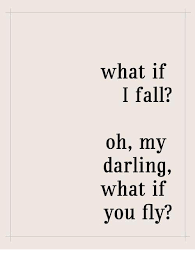It happens subtly until at some point each August it becomes noticeable. The sun has become lower in the sky making the shadows longer. Dusk has started to creep upon us earlier than before.
It signals the waning of summer and the coming of autumn.
Now September is nearly over and autumn is upon us. It’s my favorite time of year in Michigan. The long, sunny days of summer that give us the chance to wear shorts and T-shirts and walk barefoot on the soft grass and the sandy shores are gone, replaced by shorter, cooler days that call us to bring the jeans and sweaters out of storage boxes and pair them with boots and maybe a light, decorative scarf.
We make time to explore the landscape that in summer was green, but in autumn is aglow with the crimson, coral, and amber leaves. Even the soy fields display the fall colors in vast, golden waves. And we make sure to include apple orchards in our autumn adventures.
A warm cider donut with a dusting of cinnamon sugar is among the best bites of fall, but then again, so is a sip of fresh, cold cider. I like to sample cider from a variety of orchards because each is different, some more tart and others more sweet depending on the varieties of apples that the growers use in their cider mills.
In addition to the amazing apples, ciders, and donuts that are available to us in the fall, the flavor of pumpkin also returns to fall products.
I definitely look forward to pumpkin spice lattes, and I love to make mom’s pumpkin bread recipe – several times during the fall and around the Christmas season. My husband and I have also taken a liking to a pumpkin pasta sauce made with smoked sausage and fresh sage, abundant in our backyard.
Though I am clearly a fan of pumpkin, I can see that the trend toward pumpkin everything has definitely taken a turn toward the absurd in some cases, including recipes for pumpkin spice pizza and appearing in cleaning products, including pumpkin spice bleach…seriously, who thought that was a good idea?
Overall though, I am a fan of the fall fav, and we are also fans of some other autumn veggies like butternut squash, and other varieties of squash, and the root vegetables that make both a nutritious and colorful fall side dish.
In addition to the foods of fall, I like the activities of the fall. I have already mentioned going sight seeing to view the lovely landscape, and even though we’re not big corn maze people, we did do a mini maze at an autumn event a few years ago.
I think the hay bail mazes that are set up for the kids are a better fit for me personally – given my often noted lack of patience. An adult can’t get lost in those mazes; if you get bored or annoyed with it, you can simply step out.
I know that some people find the big mazes to be quite a lot of fun though, and there are those people who like to go to the night mazes, especially as Halloween nears.
I’ve only been on one hayride in the last ten years or so, but I do like them. It’s just fun to climb up on to a bunch of hay and bounce along out in the fresh fall air with a bunch of strangers who are out enjoying the same things.
And of course, fall wouldn’t be as much fun without football. Those of you who read my blog on a regular basis know from my post a few weeks ago, dedicated entirely to the topic of college football and our devotion to the Michigan Wolverines, that football is a substantial part of what makes fall a favorite for me.
Along with the football comes the small town high school homecoming parades, which will take place in our town this evening. Since I don’t work on Fridays, I have the chance to do what I often do, and walk down to the end of the block to watch the little parade pass on its way to the high school. It’s quaint – “ain’t that America.”
Many of us in the Midwest and Northern states find that autumn is the perfect balance of days warm enough to enjoy and nights cool enough to cuddle up with someone special, either human love or fur baby, and to sleep restfully.
I like living in an area with a distinct change of seasons; each one has its own charms. For me, autumn always seems to bring something special to life.
If you have the change of seasons as we do, I hope you can get out and enjoy this pleasant time of year.

